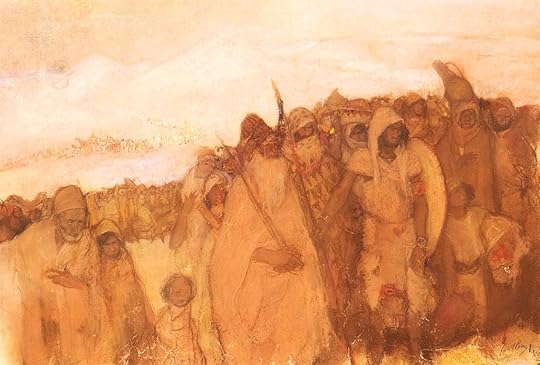What do you think?
Rate this book


3132 pages, Hardcover
First published December 18, 2018
welter and waste. The Hebrew tohu wabohu occurs only here and in two later biblical texts that are clearly alluding to this one. The second word of the pair looks like a nonce term coined to rhyme with the first and to reinforce it...

From his earliest writings on the Bible, Alter has warred against what he calls “the heresy of explanation”: the tendency among most modern English Bible translators to turn the original text’s weirder idioms into their own English-language explanatory glosses....He complains forcefully about this kind of thing in The Art of Bible Translation, and sets out a convincing brief guide to some of the Bible’s distinct stylistic devices – the semantic parallelism seen throughout the Psalms, in which the first line sets out an idea and the second elaborates or retraces it; the constant use of punning and wordplay, some of it untranslatable; the kind of repetition in which tiny variations or omissions often speak volumes; a preference for concrete language. His translation, however, makes the strongest argument of all. After you’ve read Alter, the NRSV or the NIV read like the work of a subcommittee of deans. At the same time, he isn’t simply literal, in the manner of Everett Fox, whose jerky, jittery rendering of the Pentateuch makes me feel as though I’m reading Talking Heads lyrics. He makes the text sound strange, but still recognizably English. (A brief example, from Isaiah 1:11: “I am sated with the burnt offerings of rams and the suet of fatted beasts.” As you read you really feel all those ts in your teeth.) In his judiciously-applied literalism and sensitivity to English idiom, he makes possible an encounter with the text that other contemporary translators don’t seem to trust readers with.